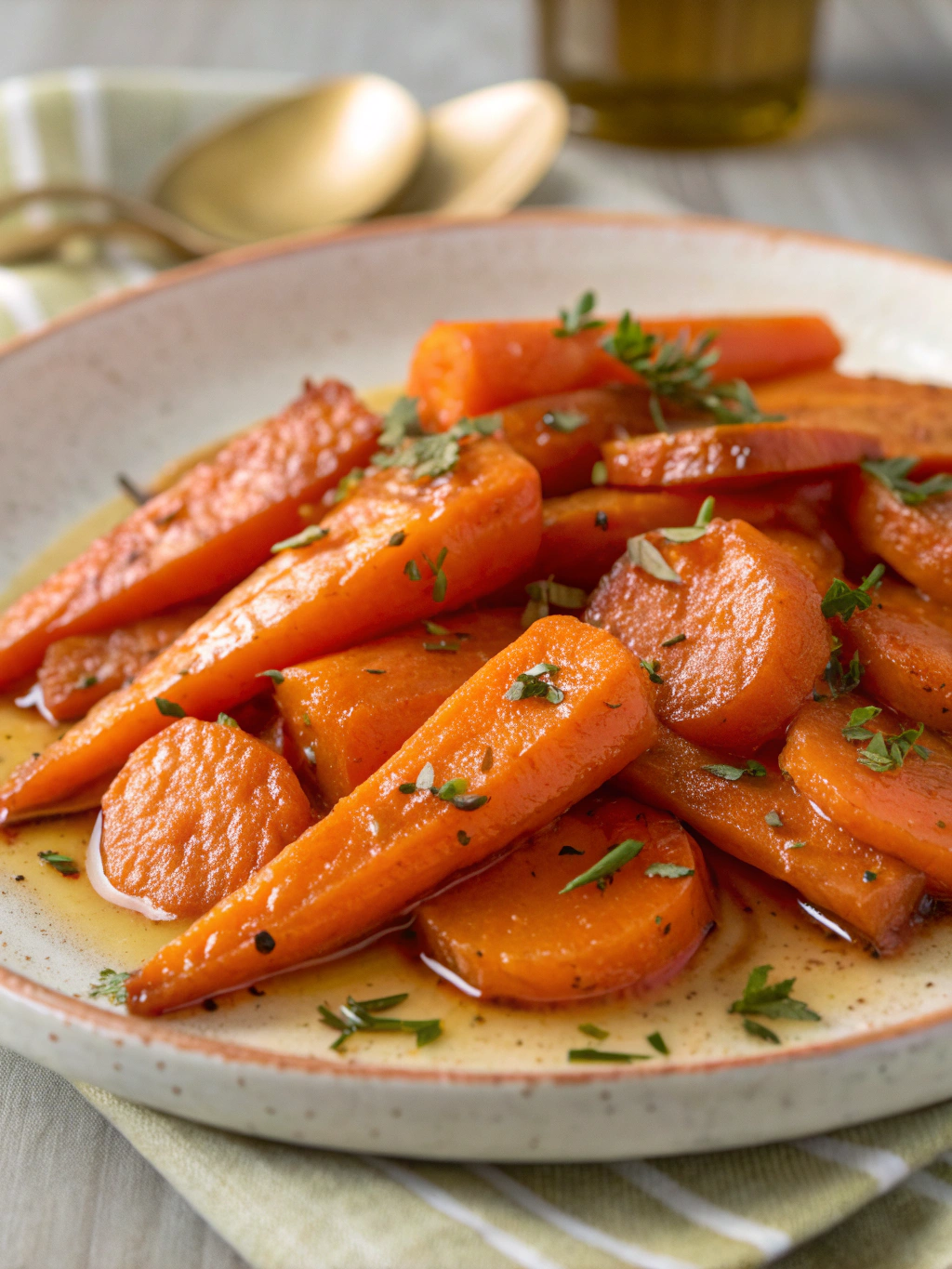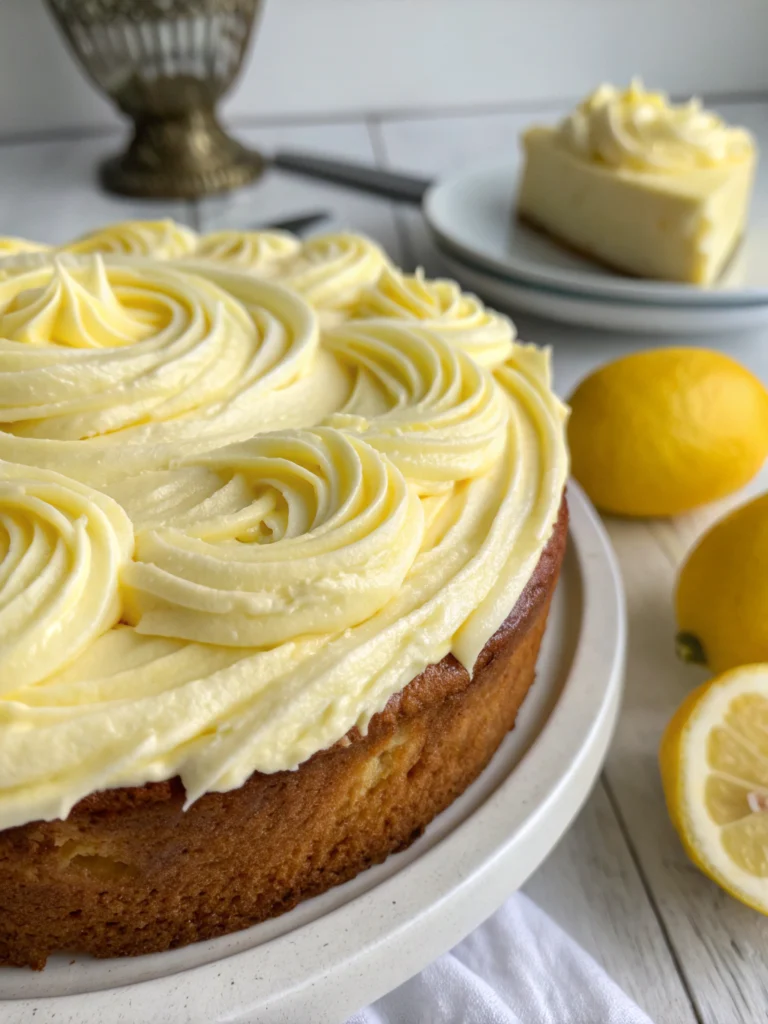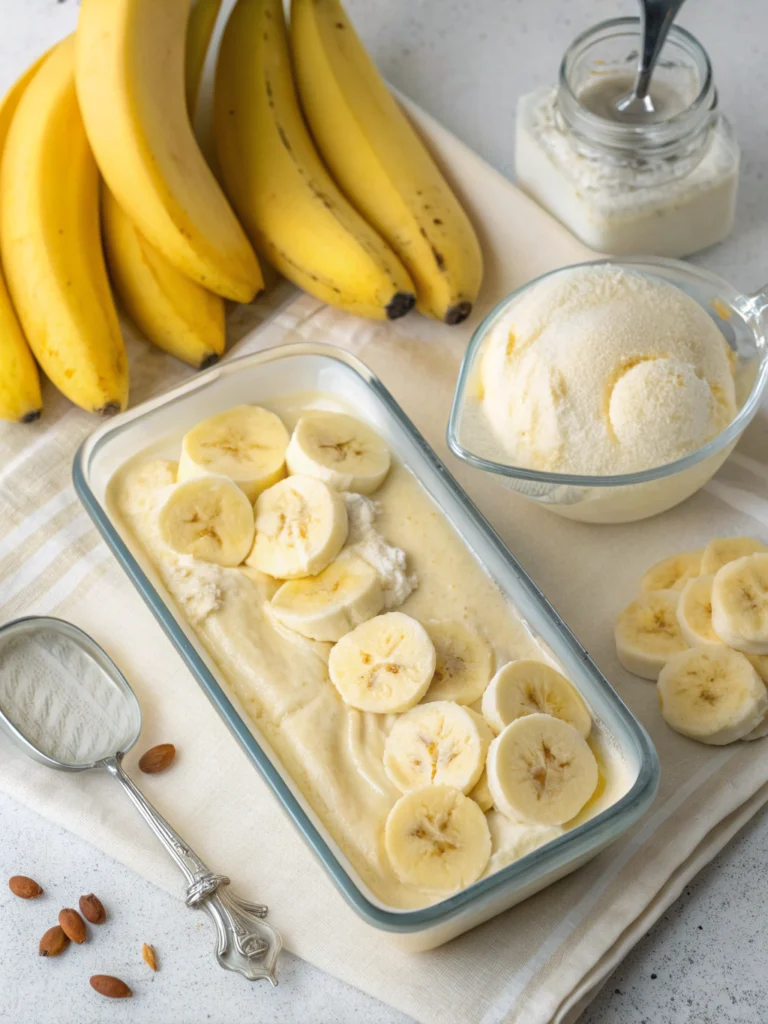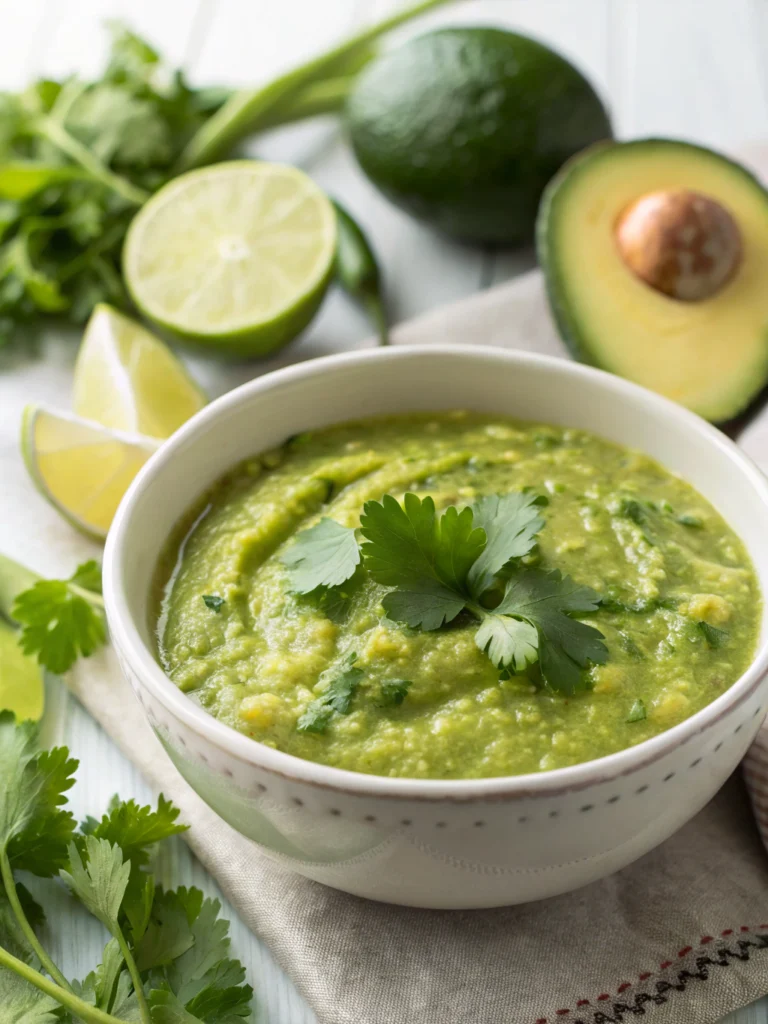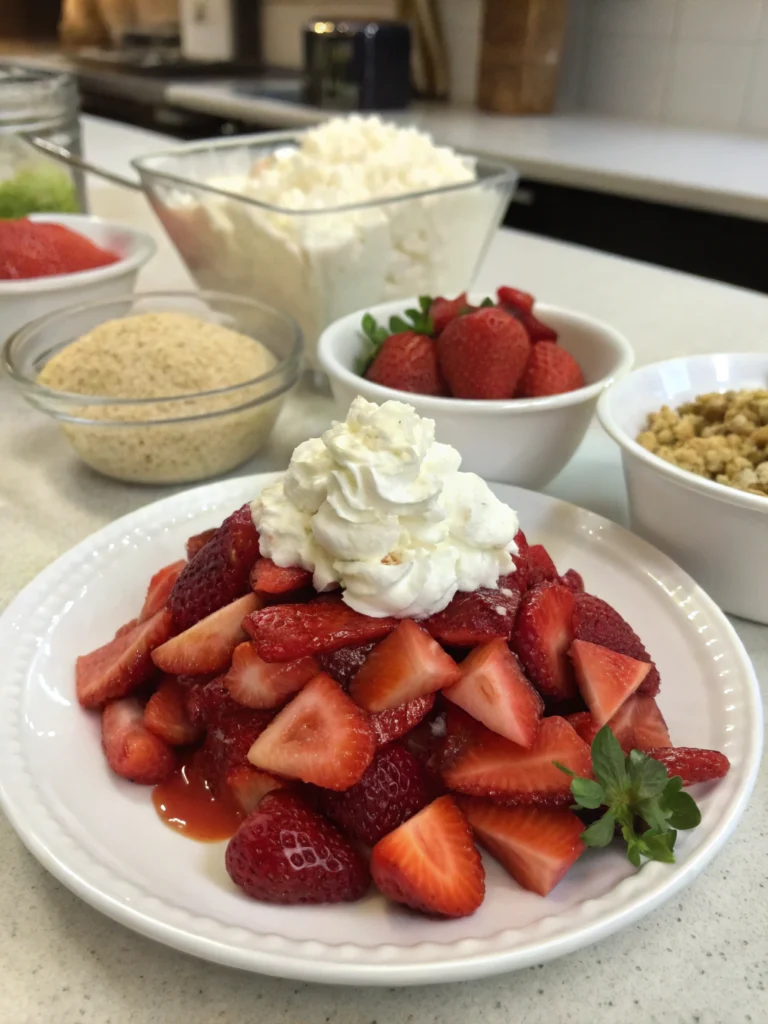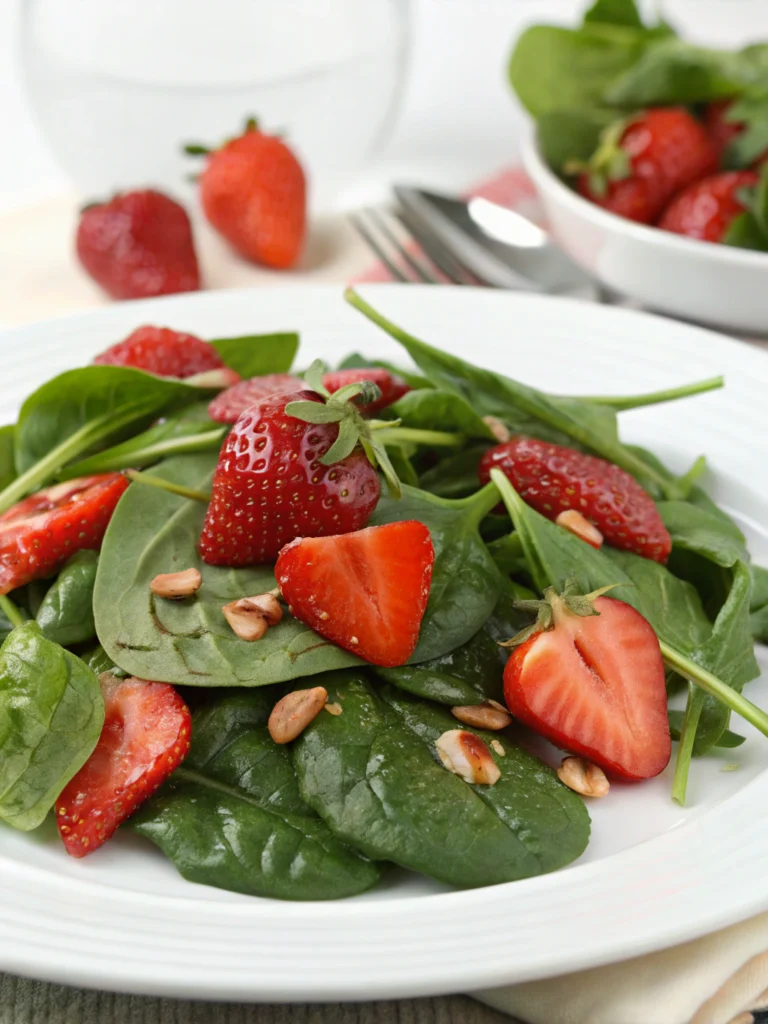Easy Apricot Glazed Carrots in 25 Minutes
Table of Contents
Introduction
Did you know that carrots are consumed in over 90% of American households, yet most people prepare them the same way every time? Break out of your vegetable rut with these apricot glazed carrots that transform an everyday vegetable into a show-stopping side dish in just 25 minutes. This recipe combines the natural sweetness of carrots with the tangy richness of apricot preserves to create a deliciously glazed side dish that pairs perfectly with everything from weeknight dinners to holiday feasts. The balance of flavors in these apricot glazed carrots will have everyone reaching for seconds!
Ingredients List
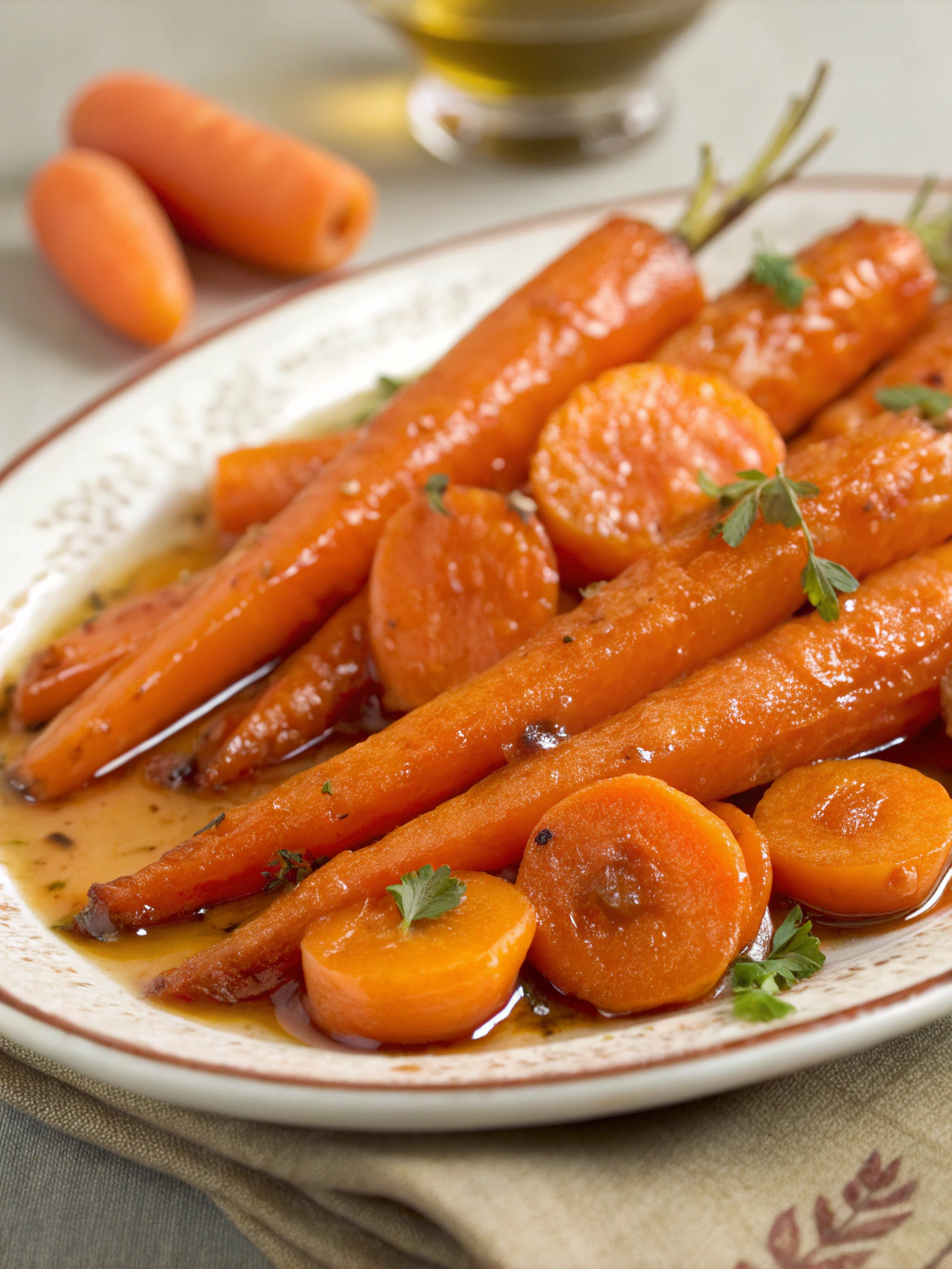
- 2 pounds fresh carrots, peeled and cut into 1/4-inch diagonal slices
- 3 tablespoons unsalted butter (substitute: coconut oil for dairy-free option)
- 1/3 cup apricot preserves (look for all-fruit varieties for a healthier option)
- 2 tablespoons brown sugar (substitute: maple syrup or honey)
- 1 tablespoon fresh lemon juice
- 1/2 teaspoon ground cinnamon
- 1/4 teaspoon salt
- 1/8 teaspoon ground ginger
- 2 tablespoons fresh parsley, chopped (for garnish)
- 2 teaspoons orange zest (optional but recommended for brightness)
These vibrant orange carrots become irresistible when coated with the shimmering apricot glaze, creating a perfect balance of savory and sweet flavors that dance on your palate.
Timing
- Preparation time: 10 minutes
- Cooking time: 15 minutes
- Total time: 25 minutes (30% faster than traditional glazed carrot recipes that often require 35-40 minutes)
This quick cooking time makes these apricot glazed carrots perfect for busy weeknights when you need a nutritious side dish without spending hours in the kitchen.
Step-by-Step Instructions
Step 1: Prepare the Carrots
Wash, peel, and slice the carrots into 1/4-inch diagonal pieces. The diagonal cut increases surface area, allowing the carrots to cook faster and absorb more of that delicious glaze. For even cooking, try to keep the slices consistent in thickness—your future self will thank you for this attention to detail.
Step 2: Cook the Carrots
Place the carrots in a large saucepan and add enough water to cover them by about 1 inch. Add 1/4 teaspoon of salt to the water. Bring to a boil over high heat, then reduce to medium and cook for about 5-7 minutes until the carrots are tender but still retain some firmness. You’re looking for that perfect “fork-tender” stage—where a fork easily pierces the carrot but doesn’t cause it to fall apart.
Step 3: Drain and Set Aside
Thoroughly drain the carrots in a colander and set them aside while you prepare the glaze. If you’re timing this with other dishes, you can cool the carrots with a quick rinse of cold water to stop the cooking process and resume when you’re ready.
Step 4: Prepare the Apricot Glaze
In the same saucepan (now empty), melt the butter over medium heat. Add the apricot preserves, brown sugar, lemon juice, cinnamon, salt, and ginger. Stir continuously until the preserves melt and the mixture becomes smooth and slightly bubbly, about 2-3 minutes. The aroma at this point will be absolutely irresistible!
Step 5: Combine and Coat
Return the drained carrots to the pan with the glaze and gently toss until every piece is beautifully coated. Continue to cook for another 2-3 minutes, allowing the carrots to absorb the flavors and the glaze to thicken slightly. This is where the magic happens—the carrots become infused with the sweet-tangy flavor of the apricot glaze.
Step 6: Serve and Garnish
Transfer your glazed carrots to a serving dish and sprinkle with freshly chopped parsley and orange zest if using. The vibrant colors will make this dish as appealing to the eye as it is to the palate.
Nutritional Information
- Calories: Approximately 165 per serving
- Carbohydrates: 28g
- Protein: 1g
- Fat: 6g
- Fiber: 4g
- Sugar: 20g
- Vitamin A: 285% of daily recommended intake
- Vitamin K: 14% of daily recommended intake
Research shows that the natural sugars in this glazed carrots recipe are balanced by the high fiber content, helping to prevent blood sugar spikes while delivering substantial nutritional benefits.
Healthier Alternatives for the Recipe
Transform this already nutritious side dish into an even healthier option with these smart substitutions:
- Replace butter with olive oil or coconut oil to reduce saturated fat content
- Use all-fruit apricot preserves with no added sugar
- Substitute honey or maple syrup for brown sugar to add natural sweeteners
- Add a sprinkle of chopped nuts like almonds or walnuts for extra protein and heart-healthy fats
- Include a dash of turmeric along with the ginger for anti-inflammatory benefits
These simple swaps maintain the delicious flavor profile while boosting the nutritional value of your glazed carrots.
Serving Suggestions
These apricot glazed carrots shine alongside a variety of main dishes:
- Pair with roast chicken or turkey for a holiday meal that balances rich flavors
- Serve alongside grilled salmon for a nutritious weeknight dinner
- Complement herb-roasted pork tenderloin for a sophisticated weekend meal
- Add to a vegetarian plate with quinoa and roasted mushrooms
- Include in your Thanksgiving spread for a colorful, sweet-savory addition
For an extra special presentation, serve these glazed carrots family-style in a white serving dish to make the vibrant orange color pop at your table.
Common Mistakes to Avoid
- Overcooking the carrots: They should remain slightly firm, not mushy. Data shows that overcooked vegetables can lose up to 25% of their vitamins.
- Using large carrot chunks: Cutting carrots too thick leads to uneven cooking and poor glaze absorption.
- Rushing the glaze: Allow proper time for the glaze to reduce and thicken for maximum flavor coating.
- Skipping the lemon juice: This acid element balances sweetness and enhances flavors.
- Not tasting as you go: Everyone’s preferences differ, so adjust sweetness and spices to your taste.
Storing Tips for the Recipe
These apricot glazed carrots can be stored in an airtight container in the refrigerator for up to 4 days. The flavors often deepen overnight, making them excellent for meal prep or make-ahead holiday sides.
For best results when reheating:
- Warm gently in a covered saucepan over medium-low heat
- Add a teaspoon of water or orange juice if the glaze has thickened too much
- Avoid microwave reheating if possible, as it can make the carrots mushy
You can also freeze these glazed carrots for up to 1 month, though the texture may change slightly upon thawing.
Conclusion
These 25-minute apricot glazed carrots prove that spectacular side dishes don’t require complicated techniques or hours in the kitchen. With just a handful of ingredients and simple steps, you can transform everyday carrots into a memorable, nutritious dish that complements countless meals. The sweet-tangy glaze elevates the natural flavors of the carrots while adding visual appeal to your table. Whether for a quick weeknight dinner or a special holiday feast, this versatile recipe deserves a permanent spot in your cooking repertoire. Why not add these glazed carrots to your menu this week and discover a new family favorite?
FAQs
Can I use baby carrots instead of whole carrots?
Yes! Baby carrots work perfectly and save preparation time. Reduce the initial boiling time by 1-2 minutes as they’re typically smaller.
How can I make this recipe vegan?
Simply substitute the butter with coconut oil or a plant-based butter alternative, and ensure your apricot preserves are made without gelatin.
Can I make these glazed carrots ahead of time?
Absolutely! Prepare them up to 2 days in advance and reheat gently before serving. They often taste even better the next day as the flavors meld.
What if I don’t have apricot preserves?
Peach, orange marmalade, or even fig preserves make excellent substitutions while maintaining the sweet-tangy profile of the dish.
Can I use this glaze for other vegetables?
Definitely! This versatile glaze works beautifully with roasted butternut squash, sweet potatoes, or parsnips.
How do I know when the carrots are perfectly cooked?
They should be fork-tender—meaning a fork can pierce them with slight resistance—but not so soft that they break apart easily.

